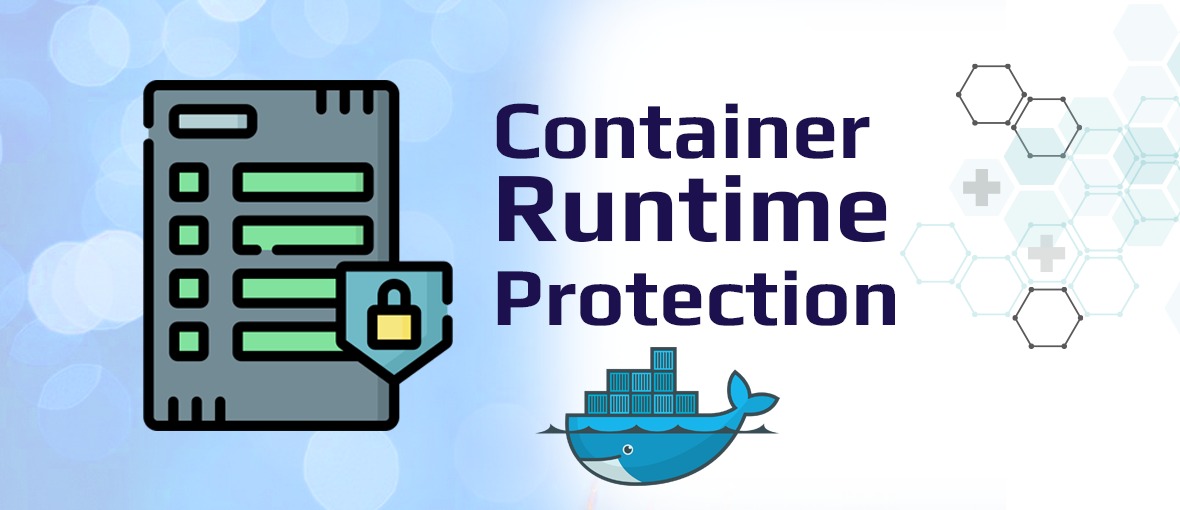Securing containers and Kubernetes starts within the building part with securing your container images. Your time...
Website Security Threats that you must be aware!!

Website security refers to the security of organizational and private public-facing websites from various cyber-attacks. These attacks largely impact all facets of website security, confidentiality, availability, and integrity and can very gravely impact the web site's reputation and business. A large number of businesses have not yet realized the serious threat that these cyber attacks pose to their organizations, and as a result, they continue to allow hackers to wreak havoc on their websites. By protecting their websites from the attack, businesses are protecting themselves from a full-blown disaster. By implementing effective website security measures, they are also minimizing the risks to their businesses and the overall IT infrastructure.
Let’s discuss some common website security threats:
DDoS Attacks
When DDoS attacks happen, it is likely to affect a website's website security and availability. DDoS stands for Distributed Denial-of-Service and is usually perpetrated by someone who has good knowledge of the security systems and networks of a network. DDoS attacks are made by attackers who make use of a variety of methods, including spoofing, automated scripts, and brute force attacks. DDoS attacks can really hamper the performance of a website as they will affect and slow down its overall functioning. The effects of a DDoS include the reduction of website traffic and the ability to meet customer demands. As such, it has become important for webmasters to take note of their website security systems and update them whenever necessary.
Cross-Site Scripting (XSS)
Cross-site scripting is a type of scripting that can affect your website's security and integrity, as well as your ability to provide users with content. While this type of scripting has been around for years, it has only recently started to pose a significant threat to websites. Essentially, this type of cross-site scripting occurs when a hacker has placed their own scripts on your site and then has distributed them across the Internet. Because scripts written by these hackers are viewed by other web browsers, the scripts infect many computers around the Internet. If your site is affected by cross-site scripting, you could experience a wide range of problems.
SQL Injection
It was not that long ago when a SQL injection affected a website's security. The SQL injection is a form of web scripting attack in which an attacker inserts his own SQL scripts into a vulnerable database. These SQL scripts could be used to perform any malicious activities such as data corruption, password reset, application termination, application patching, and numerous other dangerous activities. A successful SQL injection can lead to the takeover of the affected database by the attacker. This will give him full control over the database and execute whatever he wants on it. If you have been using the server without cleaning the database on a regular basis, then this SQL injection is likely to happen. You need to wipe out the database and reinstall the software so that the website is secure.
Malware Attacks
There are several ways for one's website to be infected with malware infections and attacks. One of the most common ways through which malware infections and attacks affect website security is through freeware application download. These freeware application download programs come with viruses, spyware, and other forms of malware that can wreak havoc on a computer system. Other ways through which a computer is potentially affected by malware infections and attacks affecting website security are through email attachments, p2p files, p3p download, game downloads, video codecs, and music channels. These malicious programs can damage a computer drastically, corrupting the system files, interfering with surfing, email, and other activities. Once these harmful programs are installed in a computer system, it becomes very difficult to remove them.
Credential Brute Force Attacks
In this day and age, securing a website is extremely important. It's essential to ensure that your website is not only secure but is also accessible to everyone, including those who may have bad intentions. As such, it is essential for any webmaster to ensure that his or her website is protected against unscrupulously done credential brute force attacks affecting website security. This attack is an extremely common phenomenon whereby hackers or external third parties use databases of valid website logins to gain unauthorized access into the website and gain access to the information, services, or functionality therein. While there are numerous ways in which these attacks can be executed, typically, they occur when a site is either unsecured or vulnerable to these attacks.
Cross-Site Request Forgery
A cross-site request forgery (CSRF) is a malicious web-code intent to access, change or destroy the integrity and availability of your website. These malicious scripts can easily execute any action in the victim's browser, like filling up forms, harvesting credit card information, emailing spammers, etc. They can affect the whole website based on how they made the cross-site request forgery - such as changing HTML codes, database, JavaScript code, images, styles, etc.

